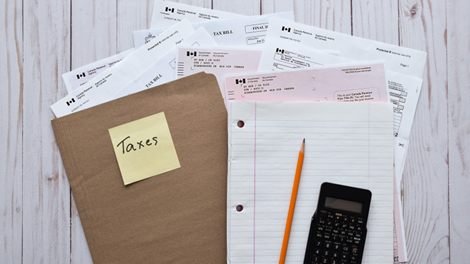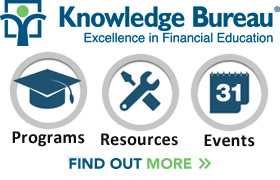
The UHT May Be Cancelled, But Vacancy Taxes Remain
As tax professionals, you are keenly aware of the constant changes our federal government makes to the Income Tax Act. Adjustments are made, and you must adapt. Not often, though, is a tax eliminated altogether. But in the case of the Underused Housing Tax (UHT), that is exactly what has happened – it was cancelled in the federal budget of November 4, 2025, but Canada’s underused housing taxes have not been eliminated. Here’s what you need to know for tax season 2026.Representing a Tax Client Who is a Newcomer
 Effective July 15, 2025, the procedures for Representing a Client have changed and this can in particular effect tax filings for newcomers to Canada. Rather than requesting the authorization through tax filing software, which was done pre-July 15, the newcomer authorize the representative through the digital My Account, which requires specific criteria to be met. And that’s where the barriers to access begin. Read on to learn more:
Effective July 15, 2025, the procedures for Representing a Client have changed and this can in particular effect tax filings for newcomers to Canada. Rather than requesting the authorization through tax filing software, which was done pre-July 15, the newcomer authorize the representative through the digital My Account, which requires specific criteria to be met. And that’s where the barriers to access begin. Read on to learn more:
Real Wealth in Action: What Iceland Can Teach Us About Financial Peace of Mind
 As Chair of the Society of Real Wealth Managers, Kristin Ramlal, B. Comm (Hons.), PFP, CIM, FCSI, RWM™, MFA-P™, FDFS™ brings both a global perspective and a deep commitment to redefining financial success beyond numbers on a statement. In this reflection, she draws on insights from a recent visit to Iceland, where economic policies, social systems, and cultural values intersect to create a society with exceptional financial security and quality of life - to explore what Canadian financial professionals and policymakers can learn about fostering true real wealth for all.
As Chair of the Society of Real Wealth Managers, Kristin Ramlal, B. Comm (Hons.), PFP, CIM, FCSI, RWM™, MFA-P™, FDFS™ brings both a global perspective and a deep commitment to redefining financial success beyond numbers on a statement. In this reflection, she draws on insights from a recent visit to Iceland, where economic policies, social systems, and cultural values intersect to create a society with exceptional financial security and quality of life - to explore what Canadian financial professionals and policymakers can learn about fostering true real wealth for all.
Master the New T3 Trust Filing Rules
 The trust tax landscape in Canada is undergoing its most significant transformation in years. Starting in 2025, all trusts will be required to file T3 returns - including those that historically did not file because there was no income to report, such as bare trusts. For tax and financial advisors, these changes represent both a compliance challenge and a business opportunity. Knowledge Bureau’s Filing T3 Trust Returns course provides the expertise you need to meet new obligations and help clients make smarter intergenerational tax and estate planning decisions.
The trust tax landscape in Canada is undergoing its most significant transformation in years. Starting in 2025, all trusts will be required to file T3 returns - including those that historically did not file because there was no income to report, such as bare trusts. For tax and financial advisors, these changes represent both a compliance challenge and a business opportunity. Knowledge Bureau’s Filing T3 Trust Returns course provides the expertise you need to meet new obligations and help clients make smarter intergenerational tax and estate planning decisions.
Maintaining Professional Credentials with Knowledge Bureau
 Did you know that for graduates who earn a Designation from Knowledge Bureau, earning the credential is only the first step. To keep these designations active, graduates must complete an annual relicensing process. This ensures they remain up to date with legislative changes, regulatory requirements, and the highest standards of professional practice.
Did you know that for graduates who earn a Designation from Knowledge Bureau, earning the credential is only the first step. To keep these designations active, graduates must complete an annual relicensing process. This ensures they remain up to date with legislative changes, regulatory requirements, and the highest standards of professional practice.
Tax Pros: Canada’s Tax System Has Taken a Big Hit
 Canada’s tax and financial pros weighed in enthusiastically on last month’s two-part Knowledge Bureau Report Opinion Poll in which we asked: "Do you believe Canada’s tax system based on self-assessment, has suffered under recent changes at CRA and by Finance Canada?" 71% said yes. Part 2 was this question: "If so, what is the one wish you have for tax reform?" The responses were very interesting:
Canada’s tax and financial pros weighed in enthusiastically on last month’s two-part Knowledge Bureau Report Opinion Poll in which we asked: "Do you believe Canada’s tax system based on self-assessment, has suffered under recent changes at CRA and by Finance Canada?" 71% said yes. Part 2 was this question: "If so, what is the one wish you have for tax reform?" The responses were very interesting:
Focus on the Wealth Gap to Close the Income Gap
 Canada’s income gap is growing. That much is true, but that one sentence fails to tell the whole story. There is much more to the issue of increasing disposable income in Canada, especially in volatile, recessionary times. In fact, to close the income gap it’s most important to focus on the wealth gap. That means helping average people save more, sooner. That brings purpose and urgency to the proactive conversations that should be initiated this fall by professionally trained financial advisors. Consider the following:
Canada’s income gap is growing. That much is true, but that one sentence fails to tell the whole story. There is much more to the issue of increasing disposable income in Canada, especially in volatile, recessionary times. In fact, to close the income gap it’s most important to focus on the wealth gap. That means helping average people save more, sooner. That brings purpose and urgency to the proactive conversations that should be initiated this fall by professionally trained financial advisors. Consider the following:

